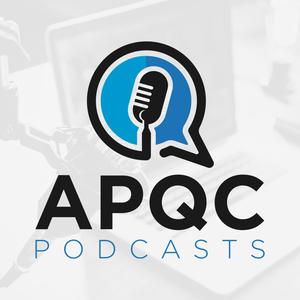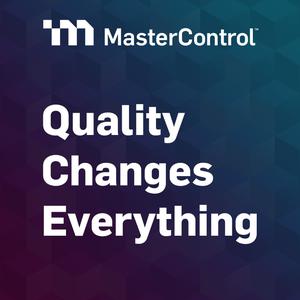
Quality 101
Paul Palmes
Quality Management in the 21st century. Informal discussions of tools, concepts and case studies for continuous improvement. We've all heard the phrase, "work smarter, not harder!" but few explain how to do it. Quality 101 blends humor, common sense, experience and accepted standards to provide insights to working smarter.
- Implementation Advice
A recent E-mail from Lauri Tuulberg of Estonia produced the subject of this Podcast. His question was intriguing to me in that it asks for guidance to often-faced issues. And even though the subject is quality program implementation problems, it’s clear that the same dynamics are at play in any new project – be it a sales campaign or the introduction of a new enterprise software program.
To listen to the program, simply click on the title below:
Feel free to leave a comment here at the site, or if you wish, E-mail me directly with comments or suggestions at [email protected]
Thanks!!
29 December 2006, 3:15 am - Definitions
Defining certain words in the “Wonderful World of Quality Management” can be a daunting task. In this Podcast, I’ve tried to define several terms we often use, but may not have taken the time to consider in depth. The story behind this program came from a recent E-mail, and I hope it answers the listener’s concerns!
To listen to the program, click on the title below:
Of course, comments are always welcome here at the site, or you can write to me directly at: [email protected]
Be Safe!!
28 November 2006, 2:05 am - Podcasting Basics -Live from Reno
This is a live demonstration, presented on October 20, at the ASQ Quality Audit Division Conference in Reno, Nevada. The podcast itself is a basic overview of podcasting and how it’s done. We’ve tried to keep it short, and don’t expect anything earth shaking, as we’re simply introducing the world of Podcasting to the attendees.
To listen to the program, simply click on the link below:
Podcasting Basics -Live from Reno
Thanks for all the E-mails and please leave any comments here at the site – otherwise my E-mail address [email protected]Here’s the primary slide from the presentation
Wide Audience Marketing
Targeted to widest possible audience
Relies on Links for exposure
Low user loyalty
Passive medium
It’s all about Google ratings
User learns of new content through self-initiated visits
Narrow Audience Marketing
Targeted to interested “Subscribersâ€
Relies on Links and Subscribers for exposure
High User Loyalty
Interactive Medium
It’s about serving a particular interest
Users learn of new content through auto invitation“100 Narrowband subscribers are more valuable to advertisers than 1000 Broadband Listeners†– Adam Curry
20 October 2006, 9:37 pm - It Should Work!
The science and art of Prevention is too often ineffective, leaving us to work on seemingly endless projects, designed to fix unnecessary mistakes and oversights. It should work the first time, especially in today’s highly competitive marketplace. This program asks each of us to examine our daily activities to determine if we’re really working smart, or simply trying to keep it together, one crisis at a time!
To listen to the program, simply click on the title below:
It Should Work!Your support and comments are greatly appreciated! Any questions? Leave a comment here at the site, or E-mail me directly at [email protected]
Thanks!
Paul
18 September 2006, 4:35 am - Rod Munro – Quality Professional
The life and career contributions of Rod Munro are available for your review in this month’s edition of Quality Magazine (www.qualitymag.com). As you listen to Rod’s common sense approach to Six Sigma, remember that he speaks from extensive experience. What’s more, he stands shoulders above most of his contemporaries in that he applies common sense and a strong focus on meaningful output to a quality methodology that too often is presented in an overly complex manner.
To listen to the program, simply click on the title below:
Rod Munro and Six SigmaAs always, I welcome comments here at the site as well as: [email protected]
Thanks, Rod!
21 May 2006, 10:13 pm - Quality Auditing with Dennis Arter
Dennis Arter is internationally recognized as a true ground breaker and instructional expert in the field of internal auditing. It was my good fortune to find time to speak with him during the last day of the American Society for Quality’s 60th Annual World Quality Conference. Here’s hoping that you enjoy the program as much as I enjoyed the opportunity to record our time together.
Click over to his website: http://auditguy.net and be sure to read through his profile. If you want to contact Dennis directly, his E-mail address is: [email protected]
To listen to the program, simply click on the title below:
Auditing with Dennis ArterThis will be one of several programs recorded at the 2006 ASQ conference. It was a great event! As always, I look forward to your comments and E-mail. If you wish to write to me directly, feel free to do so at: [email protected]
4 May 2006, 1:29 am - Collegial Consenus
Perhaps this Podcast includes too many definitions, if only because each defined word might well be the subject of its own program. Perhaps. Instead, here’s hoping that these words find unique definitions within your organization, if only because, regardless of any supplied definitions, it’s in their use that greatness is discovered.
To listen to the program, just click on the title below:
The material below is the work of the US TAG to ISO TC 176 and was recently approved as their “Principles for Consensus”
Diligence
Vote and write useful comments on all draft standards
Construct concise and clearly justified US positions
Focus attention on critical issues
Meticulously attend to significant details
Simplify complex standards issues
Concentrate on what worksDependability
Do what we agreed to do
Recognize mistakes and use the experience to improve processes
Defend consensus positions openly
Hold to commitments under inappropriate pressure
Continue to participate until everyone understands the issuesHumility
Create opportunities for others to recognize their own self-worth
Work with the least experienced members on complex issues
Treat poor results as opportunities, not mistakes
Seek opportunities to befriend people who appear to feel intimidated or unimportant
Sublimate personal needs to users’ needs for effective and efficient standards10 April 2006, 11:55 pm - Tools – Part Two – Computers
The world of quality tools took a giant step with the invention of the microprocessor and all that’s followed in its wake. Many have tamed the beast of document control through basic on-line management of all their documents and records. Still others have computerized all their testing and reports for later analysis by an informed and more aware top management group. It’s simply amazing how far computerization has taken every profession in their quest to work smarter instead of harder.
This program also marks two new milestones: The addition of many of these Podcasts to the on-line offerings of the American Society for Quality (ASQ), and the announcement of my second book entitled, “The Magic of Self Directed Work Teams – A Case Study of Courage and Culture Change.” This new addition to their Quality Press offerings tells the story of our work within Northern Pipe Products over the past 8 years in developing a participative work place that opens up unlimited possibilities to improve.
To listen to the program, simply click on the title below:
Tools in the Age of ComputersAs always, I look forward to your comments and suggestions – leave a comment here at the site (pdcauditing.com), or write to me directly at my work E-mail address: [email protected]
Thanks!
Paul
11 March 2006, 11:58 pm - Tools – Part One
Here’s an excerpt from a recent E-mail that inspired this Podcast:
Basically Project Management is the skills, tools and management processes that are required to undertake a project successfully.
If we expand on this:
Skills – specialist knowledge, skills and experience are required to reduce the level of risk that a project has – these are used to increase the likelihood of success
Tools – a suite of tools are used by project managers to increase their chance of success. Examples include document templates, registers, planning software, audit check lists and review forms.
Processes – a variety of Project Management processes and techniques are required to monitor and control the triple constraints of Time, quality and scope, plus cost of projects. Examples can include risk and issue management, time management, quality management, cost management etc
Could you please explain some of the Tools you would use in a quality program to make processes work? I guess you use more than a clip board and pencil

Regards
Paul TolenaarsWell, Paul – I dug out my clipboard and came up with a few suggestions. Many thanks your insights and this great program suggestion!
To listen to the program, just click on the title below:
As always, I’d be delighted to hear from you. Leave a comment here at the site or E-mail me directly at [email protected]
Paul
22 February 2006, 4:22 am - Processes and Control
It’s with a nod to Hans Zeyer in Bavaria that I follow recent programs regarding ISO 9001 with an examination of processes and controls. A loyal listener, Hans commented at the website that he was interested in the subject. So, in the interest of customer satisfaction, and after a great week of process-based auditing this Podcast turns out to be not only relevant, but timely as well!
Thanks Hans! To listen to the program, just click on the title below:
Processes and ControlsAs always, if you have a subject or special concern you would like me to address, leave a comment here at the site, or E-mail me directly at Northern Pipe Products: [email protected]
30 January 2006, 1:57 am - More Episodes? Get the App
- N/A
- N/A
Your feedback is valuable to us. Should you encounter any bugs, glitches, lack of functionality or other problems, please email us on [email protected] or join Moon.FM Telegram Group where you can talk directly to the dev team who are happy to answer any queries.
 APQC Podcasts
APQC Podcasts
 Process and Quality Excellence Pointers
Process and Quality Excellence Pointers
 ISO 9001 Checklist
ISO 9001 Checklist
 Q-Cast
Q-Cast
 MasterControl - Quality & Compliance Management PodCast
MasterControl - Quality & Compliance Management PodCast
 9001 Support Centre
9001 Support Centre